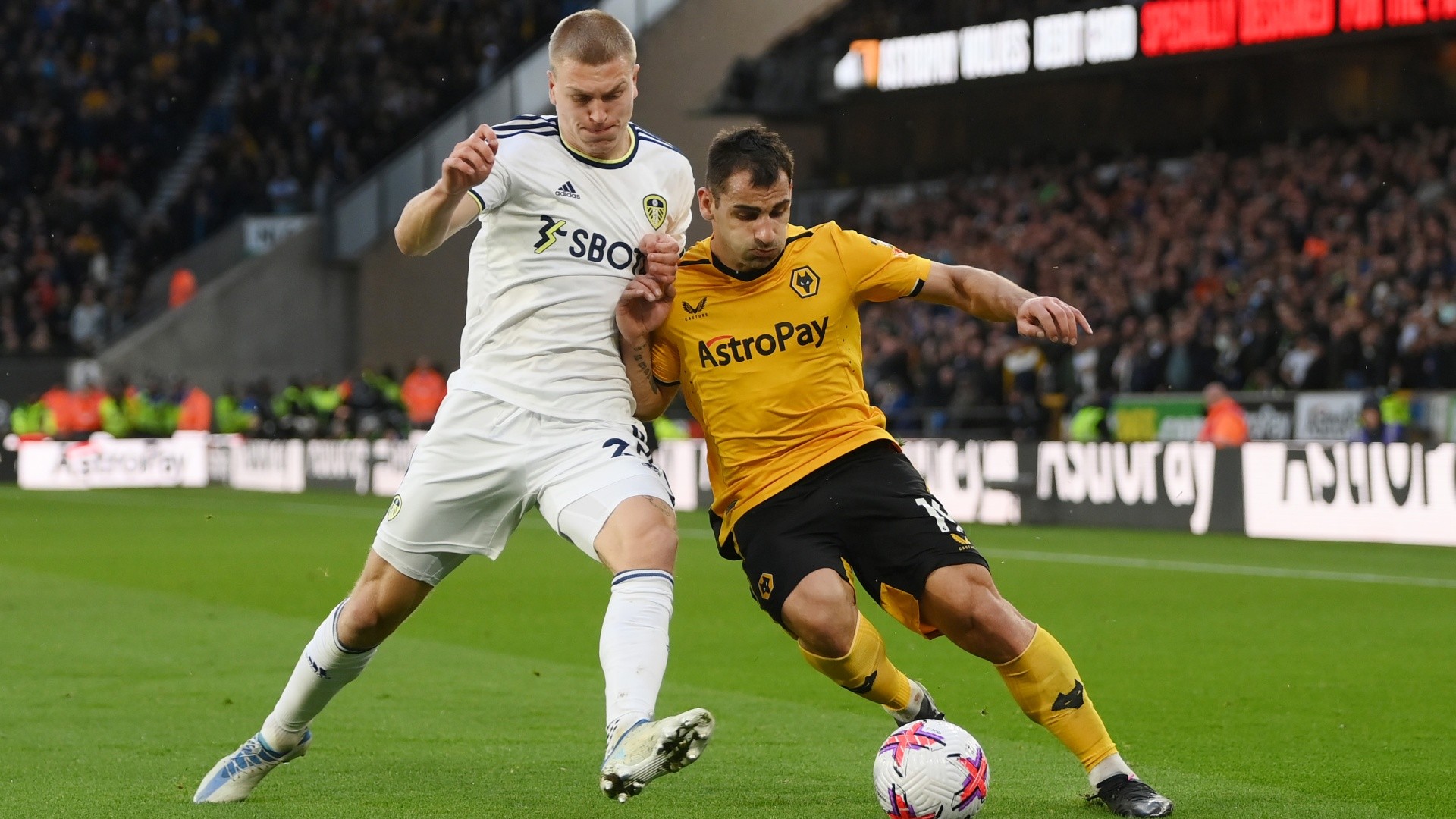Matchweek Moments: Spirit of the Game
By Ian Katan
Wolves fell to Leeds in an action-packed 4-2 thriller at Molineux this weekend. The game was bound to be a hotly contested match between two sides barely staying ahead of the relegation scrap. Six goals and last minute controversy made sure that it lived up to expectations.
Before we get there though, the first 80 minutes of the game were more than engaging enough. Leeds opened the scoring after five minutes and held a 3-0 lead an hour later. In the 65th minute, Jonny Otto’s unbelievable one-touch volley from 40 yards flew straight over the Leeds keeper. Matheus Cunha followed eight minutes later, scoring Wolves’ second off a huge deflection to make it a one goal game.
In the 84th minute, Wolves’ comeback fell apart after a video review sent off Jonny for a reckless challenge. Then, the moment of controversy. Leeds midfielder Marc Roca seemed to trip while defending and grabbed a handful of Adama Traore’s shirt on his way down. Traore stopped playing and put his arms out, allowing Crysencio Summerville to steal the ball off him and feed Rodrigo for Leeds’ fourth goal.
The Wolves team was outraged. Coach Julen Lopetegui screamed at the officials from the sideline and substitute Matheus Nunes was also sent off in the chaos. Again, the referee visited the video review monitor to decide whether Roca’s pull was enough to warrant a foul and overturn the goal.
Subjectivity in the laws of soccer is one of the most difficult components to understand, and is equally infuriating for the teams involved as it is confusing for spectators. In the International Football Association Board’s (IFAB) Law 12 on fouls and misconduct, pulling an opponent is only mentioned as an offense when it denies an obvious goalscoring opportunity.
By this definition, Roca’s tug was not an infraction as Traore was near midfield and therefore not creating a promising attack. However, there’s more to consider. IFAB’s Law 12 also says that if a player “impedes an opponent with contact,” it is a violation. The shirt pull did technically impede Traore from his normal motion by holding him back, though it was so minimal it didn’t even knock him over. How is anyone supposed to decide whether the tug was a foul?
To do so, we need to understand the intangible “spirit of the game” that is mentioned in Law 5. This maddeningly complicated phrase is no more than open-ended intuition that gives referees the ability to make their own interpretations within the laws. This also makes it hard for fans with differing opinions and varying team loyalties to agree on decisions. Players are constantly in contact with each other, and pushing, bumping, pulling and tripping are bound to happen. In isolation, Roca grabbing Traore’s shirt doesn’t automatically mean it’s a foul.
However, putting the incident in context can provide clarity. While Roca’s tug was minimal and was nowhere near enough to drag down the powerful player that Traore is, it did enough to prevent him from fully pushing off and continuing to play. With only minutes to go, Roca was trying everything in his power to prevent Traore from creating an attack. In this context and spirit of the game, Roca’s tug was a foul as it intentionally slowed Traore’s movements, and the goal should have been called back.
The referee decided to award the goal and Leeds walked away with a 4-2 win, meaning the incident ultimately had no effect on the game’s result. Leeds supporters can argue Traore should have kept playing until the whistle, but the subjectivity in the rules still leaves a huge amount of room for individual interpretations on what falls under the spirit of the game. Wolves have every right to feel outraged that the correct call was not made, no matter the game’s outcome.
